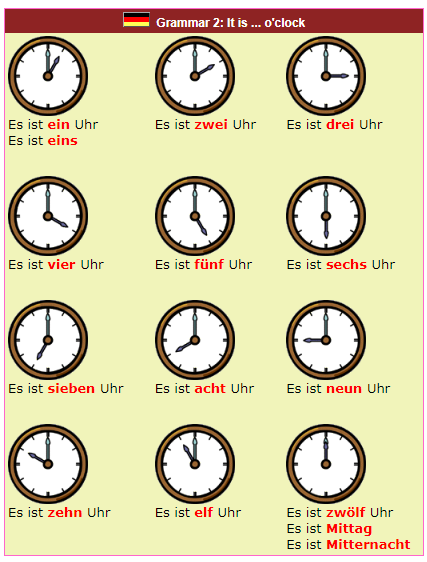Grammar 1: What time is it?
Wie spät ist es?
(Literally: "How late is it?")
Wie viel Uhr ist es?
(Literally: "How much of the clock is it?")
Both of the above phrases equate to the English "What time is it?" or "What's the time?". You can add the word for "please" if you wish to be more polite - "Wie spät ist es bitte?".

As you will have probably guessed:
"Es ist Mittag" means "It is midday"
"Es ist Mitternacht" means "It is midnight".
In the morning, afternoon, evening
Although A.M. and P.M. are not used in German-speaking countries, you can make times formed using the 12-hour clock more clear by adding the adverbs for "in the morning", "in the afternoon" etc.:
Grammar 3: morgens, abends usw.
Es ist neun Uhr morgens/vormittags
(It's nine o'clock in the morning)
Es ist drei Uhr nachmittags
(It's three o'clock in the afternoon)
Es ist sieben Uhr abends
(It's seven o'clock in the evening)
Es ist zwei Uhr nachts
(It's two o'clock at night)





